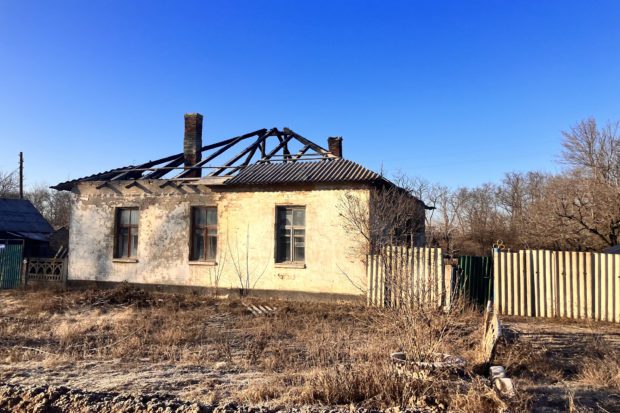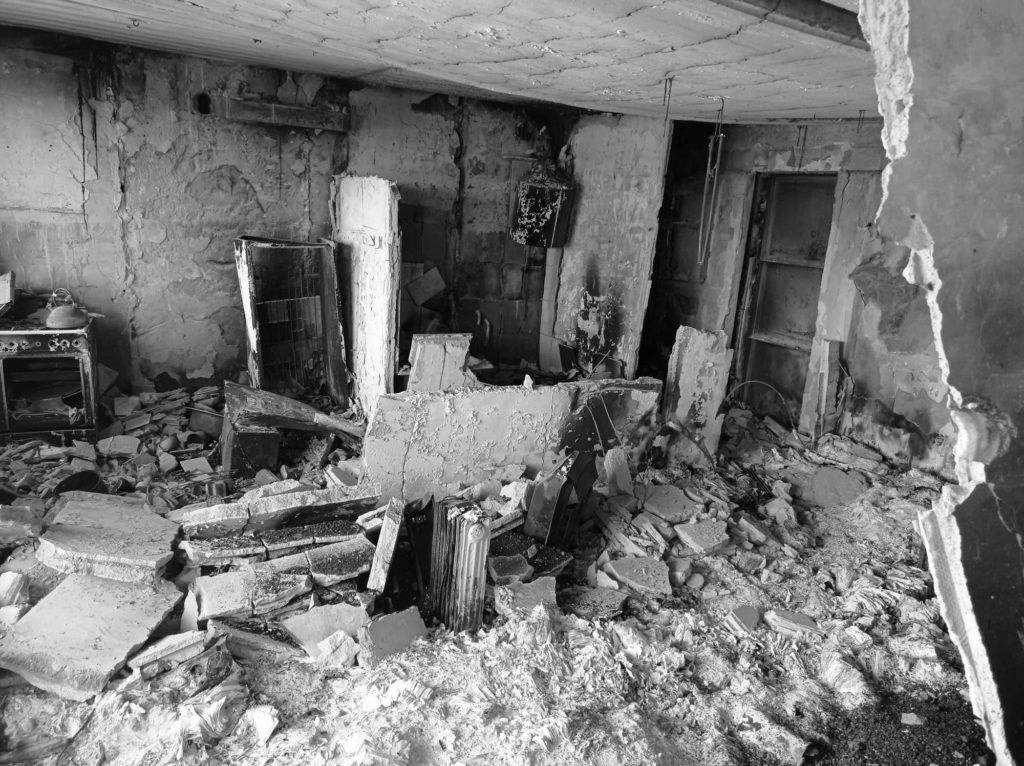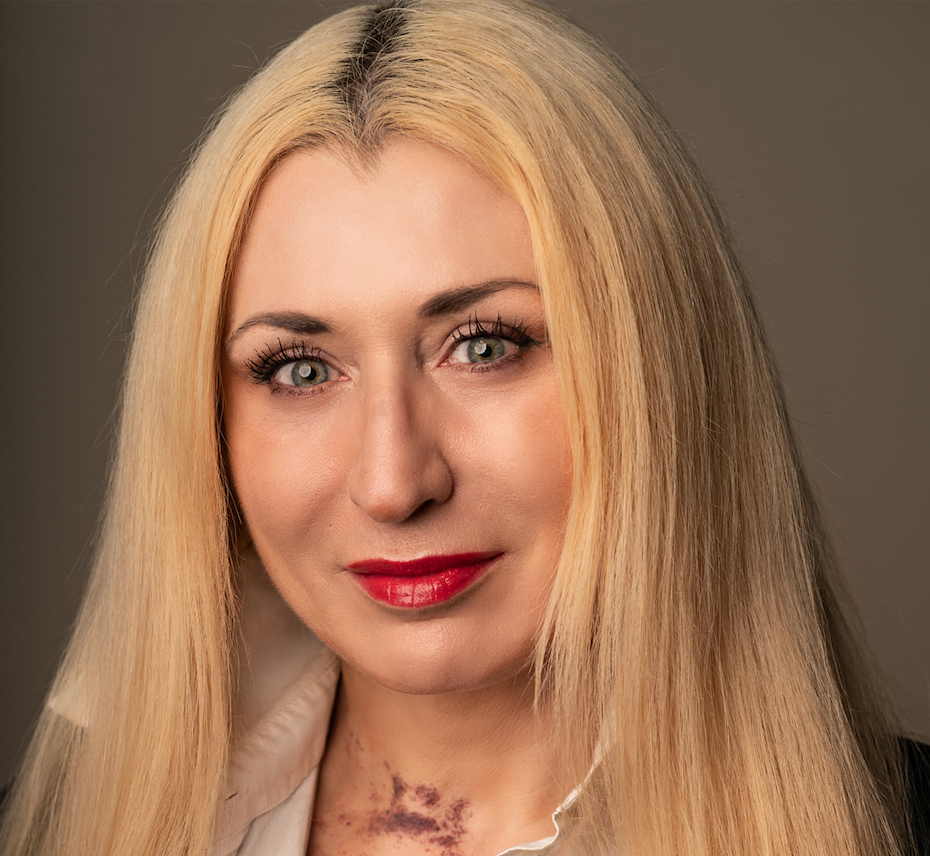

Donbas, an abbreviation for the toponym “Donetsk coal basin,” is an umbrella term applied to two regions of Ukraine: Luhansk (aka Luhanshchyna) and Donetsk (aka Donetshchyna).
“These territories were and are Ukraine albeit perverted by the Soviet ideology,” explains Olga Kryazhich, a Ukrainian author and scholar.
“It’s a good example of the Soviet mentality, which wipes away national distinctions and identity. The language was twisted [and] traditions eradicated and replaced with the cultish mentality when the area was part of the USSR.
“Yet, at all times, Ukrainian roots sprouted through. In villages, people spoke and still speak Ukrainian. The historical evidence of the Ukrainian origin of Donbas is indisputable.
“In my opinion, the very concept of Donbas will be obsolete after the war: There will be just Ukrainian Luhanshchyna and Donetshchyna.”
Kryazhich, whose apartment was bombed by the Russian military, says that “the destroyed cities will be reborn but they will not be the same. Some things will never be: the old photos that burned along with my apartment, my grandma’s porcelain that was smashed by the Russian missile along with the wall of the building.
“I used to live in Sievierodonetsk, a city from which only ruins are left. I will never be able to rebuild what was ruined, and I don’t know where I will live.
“Russia left me homeless; it literally took away my home, but it could not take away Ukraine from me. My home is Ukraine. It’s inside of me. I am not moving to another country at such a hard time, and I will do everything I can to speed up victory.”
“Donbas is either in the line of fire or captured by the enemy. A lot of people from these territories have left,” said Serhyi Zhadan, the most prominent Ukrainian novelist and poet, an essayist, a literary translator, a rock musician and the author of seven award-winning novels.
Lyuba Yakimchuk, another celebrated Ukrainian poet, playwright and screenwriter, and author of the poetry book Apricots of Donbas, had to relocate from Donbas to the Kyiv region when the Russian Federation’s proxies first started hostilities in her birthplace. In 2014, the Russian Federation annexed Crimea; its regular troops and proxies occupied parts of Donbas. Yakimchuk had to build a new home. The Russians came to seize it again on Feb. 24, 2022, but failed.
“I was born and grew up in the industrial part of Luhanshchyna,” Yakimchuk said. “I miss our Eastern steppes and terricons—the piles of minerals shaped like Egyptian pyramids—terribly. I also miss apricots, of which we have endless amounts.
“In my house in Luhanshchyna, an occupant has been living for many years. I hope that they bomb my old home so that my parents nor I have any more hopes to return. It is impossible to live fully if you always turn back to the past. That’s why I am looking into the future.”
Olena Stepova, a multi-genre writer and blogger from Donbas, had to relocate to a small village in the center of Ukraine. She shared, “Something died inside of me in March 2014 when I saw people in our city waving Russian Federation flags.
“Russian propaganda destroyed not only everything Ukrainian. It also destroyed the most important thing—humanity. Looking at the photos of Donetsk, I saw how it was dying, degrading. One day it was a modern city, a 2014 city. Today, it is the city from the 1980s.
“I do not want to go there, in this dark, gray, gloomy place. After the ‘Russian world’ arrived, everything got so dirty. Dirt is everywhere: on the streets, inside of people. It’s the Soviet in them, the world in which a smile or being sincere turns you into a foreign spy.
“It’s a poison of sorts, the poison that transforms people forever. For me, it’s just territory that should be liberated.”
Iya Kiva, a poet, translator and journalist of Jewish descent, born in Donetsk, just like her mom, told a story of her ancestors. Her grandparents’ generation came from all over Ukraine, ending up in Donetshchyna due to forced relocation during Holodomor (“The Great Famine”) or attempting to run from the Holocaust.
“Forced displacement due to the war cuts off normal and usual life from you as if it was something unnecessary, redundant, vain, something that you’ll never need,” said Kiva.
“I haven’t been to Donetsk since 2014, and I don’t know if I can ever find myself at home again or if there will be a place to return. When it is over eight years, you cannot speak of this state as temporary. And it is definitely not the same as losing a home because of a flood or fire.
“There is no feeling of accident or injustice—you feel abuse instead as if a hump on your back deforms your every step and move. All the time, you feel the Russian violence that has changed the trajectory of your life.
“After Feb. 24, the notion of home has gained even more relativity for me. When the shelling of Donetsk and the region became regular and ruthless, there was a feeling that my city would be razed to the ground.
“I mean the city as material reality because Donetsk, as my city, Donetsk before the occupation and the war, exists only in my memory. When I think about the city of my childhood, I realize that I still remember my home phone number, although I can’t share it with people anymore.”
In January 2023, the author visited the biggest hospital in the Donetsk region, located in Kramatorsk. It treats mostly wounded military, although the doctors still attend to civilians.
Vasyl, 26, had just finished med school when the full-scale Russian invasion of Ukraine started. He is now performing surgeries around the clock for days on end. He said that anywhere from 10 to 80 wounded are delivered to his ward from the front line near Bakhmut.
Andriy, an orthopedic surgeon and an aspiring rock singer in his early 30s, left his practice and band in Lviv and managed his department, in addition to amputating limbs. He said that playing guitar and speaking to his daughters helped him cope.
Oleksiy Yalovenko, the hospital’s general manager, said that the full-scale war had changed everything in his life and thanked charities from many countries for support and for providing much-needed equipment. Within two hours of the author’s visit, five severely wounded soldiers were rushed to the ICU. A week after the visit, the area around the hospital was bombed, and residential buildings were damaged, and civilians were killed and wounded.
In villages near Vuhledar, one of the hottest spots at the front in February 2022, shelling continued nonstop. In Bohoyavlenka, a Russian missile hit a residential building. The earth was on fire, and black smoke rose into the sky, where a drone fight was ongoing.
In Novoukrainka village, Nina, a pensioner who had resided there since 1984, her three dogs at her feet, explained why she did not want to leave. She left her home for one month in March 2022 but returned in April. She was too homesick.
As explosions rocked the ground, she said, “I believe in Ukraine. We will survive. We are a strong nation. We will win.”

